Event, Europe
Assessment, an essential step towards the European Higher Education and Research Area
Published on
 By helping to shape the landscape of higher education and research, evaluation is an indispensable process for shaping the future of the European Higher Education Area.
By helping to shape the landscape of higher education and research, evaluation is an indispensable process for shaping the future of the European Higher Education Area.
Within the framework of the French Presidency of the European Union (PFUE 2022), the Europe and International Department (DEI) of the Hcéres brought together on March 16, 2022, partners and stakeholders in European higher education and research, to discuss the role of evaluation in the face of the challenges generated, among other things, by the internationalization and digitalization of higher education and research.
The four components of the training-research-innovation-professional integration continuum were at the center of discussions on evaluation issues during the day's roundtables, which were structured around three sessions.
First, the issue of the continuum was discussed in terms of the strengths and weaknesses of European higher education, research and innovation on the international scene. Then, the "evaluation challenges for European agencies and actors in higher education" were addressed from the perspective of comparison and exchange of experiences between representatives of different countries regarding the use of GSEs (Round Table 1) and the perspectives of European universities (Round Table 2). Finally, the last session was dedicated to the perspectives and new themes to be put on the agenda of research evaluation, by crossing the approaches of research evaluation in different countries (Round Table 1) and then by addressing the challenges for research evaluation in the European Union (Round Table 2).
Health measures still in force in March 2022 limited the number of places available, but some twenty European countries were represented on site alongside the dozen or so representatives of European agencies and European players in quality assurance or international agencies who spoke at the round tables. Nearly 300 people followed the online broadcast of the event and were able to contribute to the debates and discussions.
> Speakers' verbatim
> Speakers' short biographies
> Videos of all sessions
> Programme :
Opening Session : Assessing higher education, research and innovation in the EU
Why is evaluation an essential step for the European Higher Education and Research Area? What are the priorities for evaluation of education and research in the European Union?
- Thierry Coulhon, President of the Hcéres
- Clément Beaune, Secretary of State in charge of European Affairs, Ministry of Europe and Foreign Affairs
- Michaela Šojdrová, Member of the European Parliament (European People’s Party), Rapporteur on the European Education Area
- Claire Giry, Director General for Research and Innovation (DGRI), Ministry for Higher Education, Research and Innovation
Session 1: Strengths and weaknesses of the European higher education, research and innovation area on the international stage. What higher education-research-innovation-employability continuum ?
The European Higher Education and Research Area faces emerging societal challenges - internationalization, digitalization, professional integration, awareness of sustainable development objectives... Through the French Presidency of the Council of the European Union (PFUE), the year 2022 is an opportunity to evaluate the strengths and weaknesses of the European Higher education, research and innovation (ESRI) at the international level, in particular its capacity to integrate these new challenges through the articulation of the components of the training-research-innovation-professional integration continuum. Evaluation should be a key tool in this process of valorization and should help to affirm the EU's place on the international scene. What are the strengths and weaknesses of the European ESRI on the international scene? Are all the components of the European ESRI (higher education, training, research and innovation and professional insertion) on the same level? How can the evaluation of higher education and research contribute to the development of the components of the European ESRI on the international scene? What can we learn from international best practices to improve evaluation in the EU and address these societal challenges?
- Manuel Tunon de Lara, President of France Universités
- Anna Panapogoulou, Director of the European Research Area and Innovation, European Commission
- Maria Leptin, President of the ERC (European Research Council)
- Chan Basaruddin, Vice President of INQAAHE (International Network for Quality Assurance Agencies in Higher Education)
Session 2: What are the challenges in terms of evaluation for European agencies and higher education stakeholders?
How do European agencies and associations of higher education actors (ESU, EUA and EURASHE) see their role internationally? What collaboration between European agencies? How can universities cooperate within European university alliances to meet regional, national and global challenges?
Round Table 1. How to design evaluation in the European Higher Education Area? Feedback from the founders of the ESG
What conclusions can be drawn from the GSEs? Are they adapted to the needs of the different actors in higher education and to contemporary issues? What recognition do the GSEs give to the European higher education community on the international stage?
- Douglas Blackstock, President of ENQA (European Association for Quality Assurance in Higher Education)
- Maria Kelo, Director of the Institutional Development of the European University Association (EUA)
- John Edwards, Secretary General of EURASHE (European Association of Institutions in Higher Education)
- Jakub Grodecki, Vice President of ESU (European Student Union)
- Colin Tück, Director of EQAR (European Quality Assurance Register for Higher Education)
Round Table 2. First steps and perspectives of European universities – what future for such alliances ?
As European university alliances are being created, what can we learn from this innovation in the creation of a European higher education and research area? How can we evaluate universities whose models are singular and protean? What would be the relevant benchmark for evaluating doctoral training and research, and even the innovation produced in European universities? How does a national evaluation lead to European recognition and accreditation?
- Fabienne Péraldi-Leneuf, Vice President in charge of Europe at the University of Paris 1-Panthéon Sorbonne, Co-president Una Europa at Paris 1
- Sofia Costa D'Aguiar, Director General of EELISA (European Engineering Learning Innovation and Science Alliance)
- Pierre Koch, Director of the Université Technologique de Troyes, coordinator of the European University of Technology (EUt+)
- Jolanta Silka, Director of the AIC (Academic Information Centre, Latvia, member of the EUniQ project)
- Sandra Bezjak, Acting Director of ASHE (Agency for Science and Higher Education, Croatia)
Discussion by Vanessa Debiais-Sainton, Head of the Higher Education Unit, Directorate General for Education, Youth, Sport and Culture of the European Commission
Session 3: Research assessment in the European Union: new topics to put on the agenda
This session highlights the key players in research evaluation in the EU by first presenting the current missions and practices of research evaluation as practiced by four European agencies, before discussing the challenges raised by research evaluation and the responses that would be appropriate in the context of an agenda to be defined.
Round Table 1. How do European agencies assess research today ? Comparative perspectives from four countries: Italy, Germany, Sweden, Czech Republic
What are the different approaches used by different countries and structures to evaluate research in the European Union? This roundtable invites a comparative approach between Italy, Germany, Sweden, and the Czech Republic to address what, within their respective national contexts and missions, defines their specific methodologies and procedures.
- Antonio Uricchio, President of ANVUR (Italian National Agency for the Evaluation of Universities and Research Institutes)
- Theodor Leiber, Scientific Advisor and higher education researcher at Evalag (German Agency for evaluation in the Länder of Baden-Württemberg)
- Petr Noskievič, Board member at the NAB (National Accreditation Bureau for Higher Education, Czech Republic)
- Anders Söderholm,
Director General of UKÄ (Swedish Higher Education Authority)
Round Table 2. What shall be the challenges for the future of research assessment in the EU?
The modalities of research evaluation have been questioned during the last decade, both at the European and global levels. Movements advocating a more qualitative evaluation, less focused on bibliometrics and taking into account scientific integrity, have brought these issues to the forefront. These issues are essential in order to give back to European research the trust and transparency it needs to be placed at the service of society and recognized internationally. What are the future challenges of research evaluation? Why is bibliometrics not a sufficient measure of research quality? How can EU research evaluation be improved?
- Kostas Glinos, Head of the Open Science Unit, Directorate-General for Research and Innovation of the European Commission
- Lidia Borrell-Damian, Secretary General of Science Europe
- Stephen Curry, Chair of DORA (San Francisco Declaration on Research Assessment)
- Deborah Chery, Member of the working group on research integrity and assessment at Eurodoc (European Council of Doctoral Candidates and Junior Researchers)
Closing Session
Evaluation is an integral part of the life of higher education and research. Evaluation is not an activity separate from scientific production, it is the keystone of it and constitutes a form of learning for scientists. To practice evaluation is also to participate in linking research to training. Is the diversity of practices within the EU an asset or a handicap on the international scene?
- Thierry Coulhon, President of the Hcéres
- Jean-Pierre Bourguignon, Honorary professor at the Institut des Hautes Etudes Scientifiques (IHÉS)



